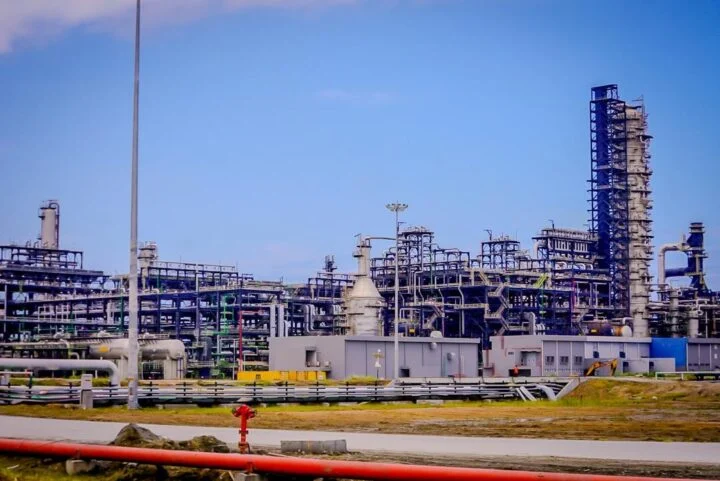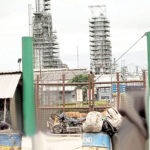It was a soothing relief in the last week of November when the news filtered about the recommencement of operations at the Port Harcourt refinery after decades of inactivity, failed promises and wastage of billions of naira.
Unfortunately, less than 24 hours after, the good news was nearly overtaken by bad news, needless contradictory claims, and blame game.
In some quarters, it was stated that the refinery was only blending petrol, akin to the happenings in Malta, where some privileged Nigerians have been making fortunes by importing fuel to the detriment of about 230 million citizens.
In other respects, it was stated that it was old stock of petrol that was being trucked out; and that the product being sold was more expensive than the one being imported, or the one processed in private refineries within Nigeria.
And before the increasingly agitated Nigerians could make sense of what was happening, another narrative surfaced that the Nigerian National Petroleum Company Limited (NNPCL) was only selling the product to its outlets. Shortly thereafter, there were also reports that the facility had stopped production.
The confusion got to the extent that some community leaders around the old and new Port Harcourt refineries alleged that nothing was happening there ab initio, a claim that elicited rebuke from the NNPCL through its spokesman, Olufemi Soneye, who said the “refinery is currently producing at 90 per cent throughput which translates to Straight-Run gasoline (Naphtha) blended into 1.4 million litres of PMS, aside from other products like diesel and kerosene.”
He described the community leaders as uninformed critiques of refinery operations.
Before the announcement of a new dawn for the Port Harcourt refinery, there were several failed timelines, including the one in 2023, when the NNPC announced that the refinery would be mechanically complete in December 2023, and would begin refining 60,000 barrels of crude oil per day after the holidays.
The NNPC, thereafter, announced that the refinery would begin operation in April 2024.
Considering that the dream did not come true, the oil company promised that the refinery would begin operations between July and August, 2024, but that promise, like others before it, was followed by absolute silence until November this year.
The two refineries in Port Harcourt have a combined capacity of 210,000 barrels of crude oil per day, and the rehabilitation was awarded to Tecnimont S.P.A. in March 2021 for $1.5 billion. The project was intended to restore the refinery to at least 90 per cent of its nameplate capacity.
The latest update was on Thursday, when the report of a fact-finding mission to the refinery showed that it receives regular crude supplies, contrary to claims that it lacks crude to refine.
Before then, on Sunday, December 1, 2024, the Managing Director of the Port Harcourt refinery, Mr. Ibrahim Onoja, announced the resumption of full operations “after temporarily scaling down”.
“We replaced most of the equipment including pump installation and cables. The plant is running and we are trucking out our products”, he told journalists.
Also speaking at the occasion, which appeared to be meant to address misgivings, the Director of Operations of the Nigeria Pipeline Storage Company (NPSC) Ltd, Mr. Moyi Maidunama acknowledged a temporary reduction in production, which he said was aimed at improving the delivery capacity of the facility.
“Our operations were not totally halted but reduced due to some of the improvements that we needed to make in terms of getting more loading arms operational,” he said.
The terminal manager at the facility, Mr. Worlu Joel, said that the depot, which has 11 functional loading bays, currently uses only three due to its high efficiency, adding that each of the bay evacuates as much as three trucks in 15 minutes.
He, however, expressed worries over the slow turnout of tanker drivers.
Millions of Nigerians are still waiting for a convincing position from these narratives because, for many citizens, the more they look at the complexities, the less they understand.
However, what concerns the citizens at the moment is not whether the Port Harcourt refinery is operating in full throttle or not.
What they want is sustainable supply of affordable petrol at this critical time of economic downturn occasioned by low productivity.
It is only affordable and sustainable fuel supply that will reflate social and economic activities, considering that civil servants and traders are increasingly finding it difficult to go to work, while manufacturers are shutting down their facilities because of high energy costs.
Whatever was spent to bring back the Port Harcourt refinery, or whether petrol is being refined or blended, what is important now is available and affordable petrol. It is the responsibility of law enforcement agencies like the Economic and Financial Crimes Commission (EFCC) and the Independent Corrupt Practices and other related offences Commission (ICPC) to uncover and prosecute those behind any untoward dealings.
For millions of Nigerians who are finding it difficult to feed since the removal of subsidy, citizens whose purchasing power has been debased by a devalued currency, which is now one of the worst in the world, it makes no sense to them for leaders to justify high cost of fuel citing international metrics after earlier promises that local refining will bring succour.
Many countries that discovered oil years after Nigeria have leveraged the advantages therein to diversify their economies in the areas of commerce, agriculture and manufacturing for the benefit of their people.
Over six decades after the discovery of oil with seeming little to cheer, Nigerians seem to be tired of failed promises. The federal government, and by extension the NNPCL must use the Port Harcourt refinery to get the energy sector right.

 Join Daily Trust WhatsApp Community For Quick Access To News and Happenings Around You.
Join Daily Trust WhatsApp Community For Quick Access To News and Happenings Around You.


